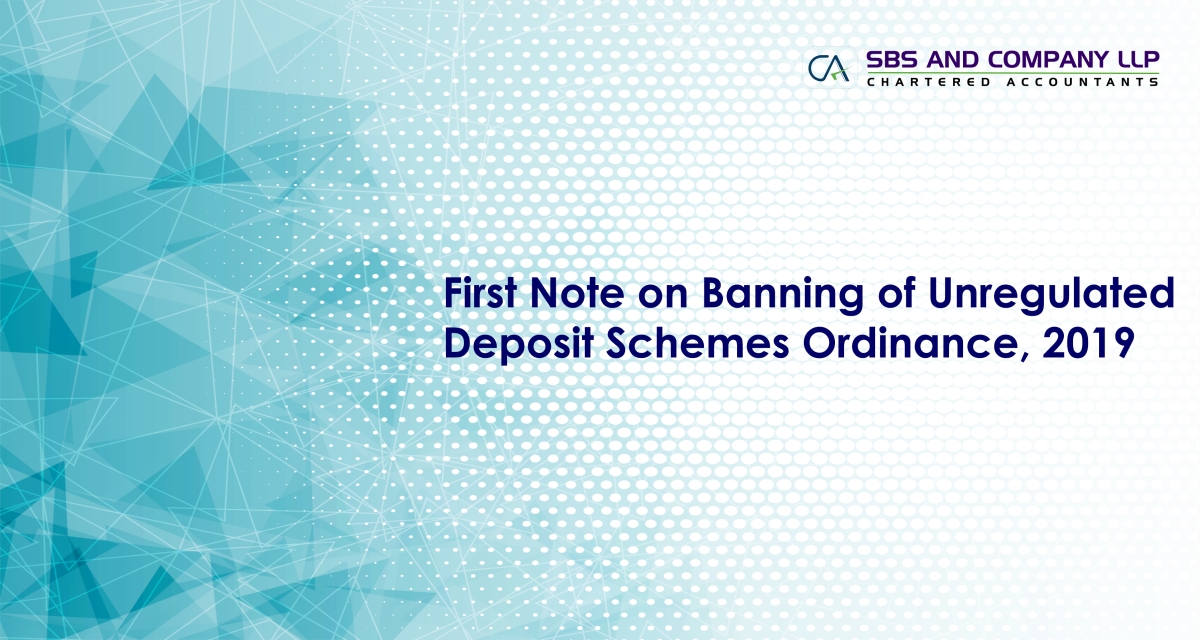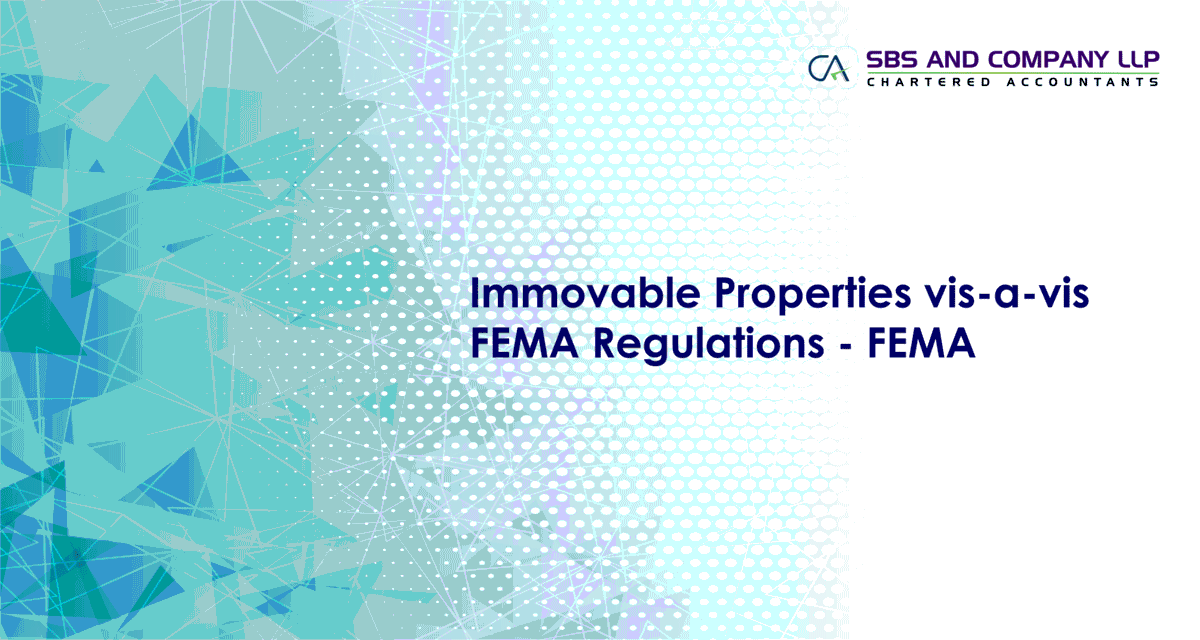- SBS AND COMPANY LLP
- Blog
- Hits: 1947
First Note on Banning of Unregulated Deposit Schemes Ordinance, 2019
The Banning of Unregulated Deposit Schemes Ordinance, 2019 (for brevity ‘Ordinance’) was promogulated by Honourable President of India on 21st Feb 2019. The main objective of the Ordinance is to provide for a comprehensive mechanism to ban the unregulated deposit schemes and to protect the interest of depositors and for matters connected and incidental thereto. The Banning of Unregulated Deposit Schemes Bill, 2019 was passed on 13th Feb 2019 in Lok Sabha and since the bill could not be taken up for consideration and passing in the Rajya Sabha, the President has promogulated the Ordinance in light of powers vested in him vide Article 123 of Constitution.
Read more: First Note on Banning of Unregulated Deposit Schemes Ordinance, 2019






(e)-Income-Tax.png)

